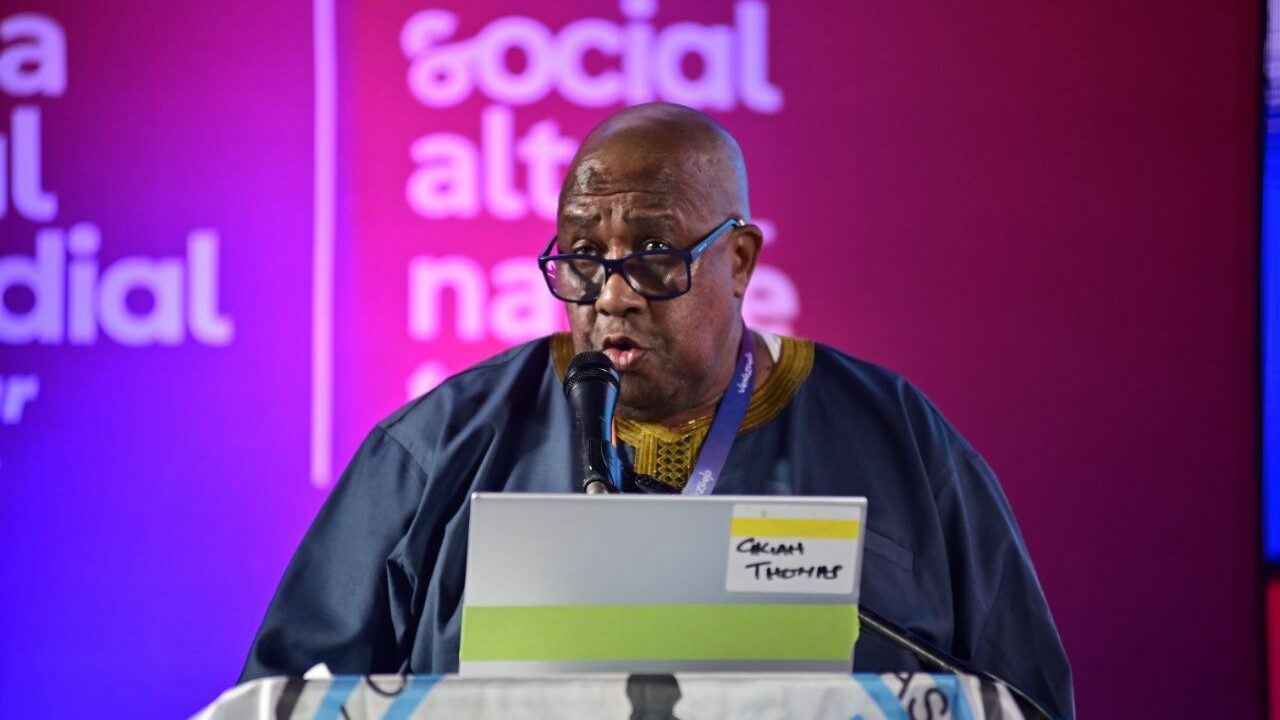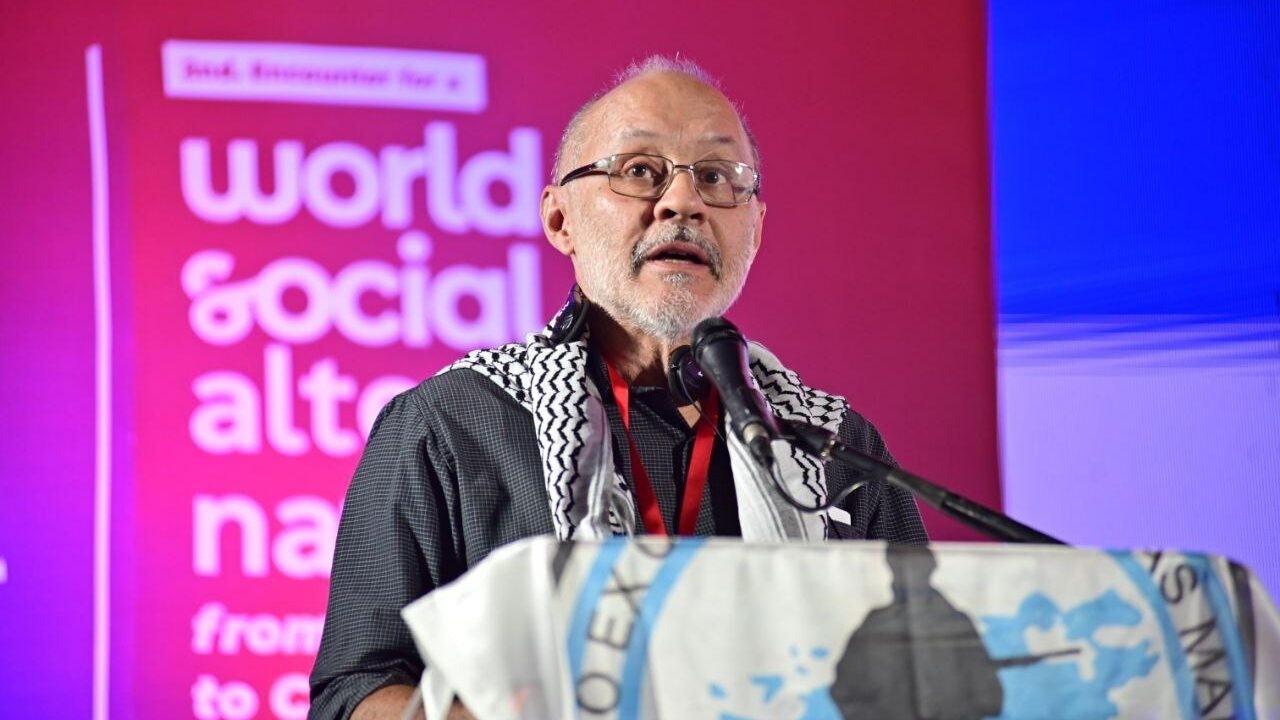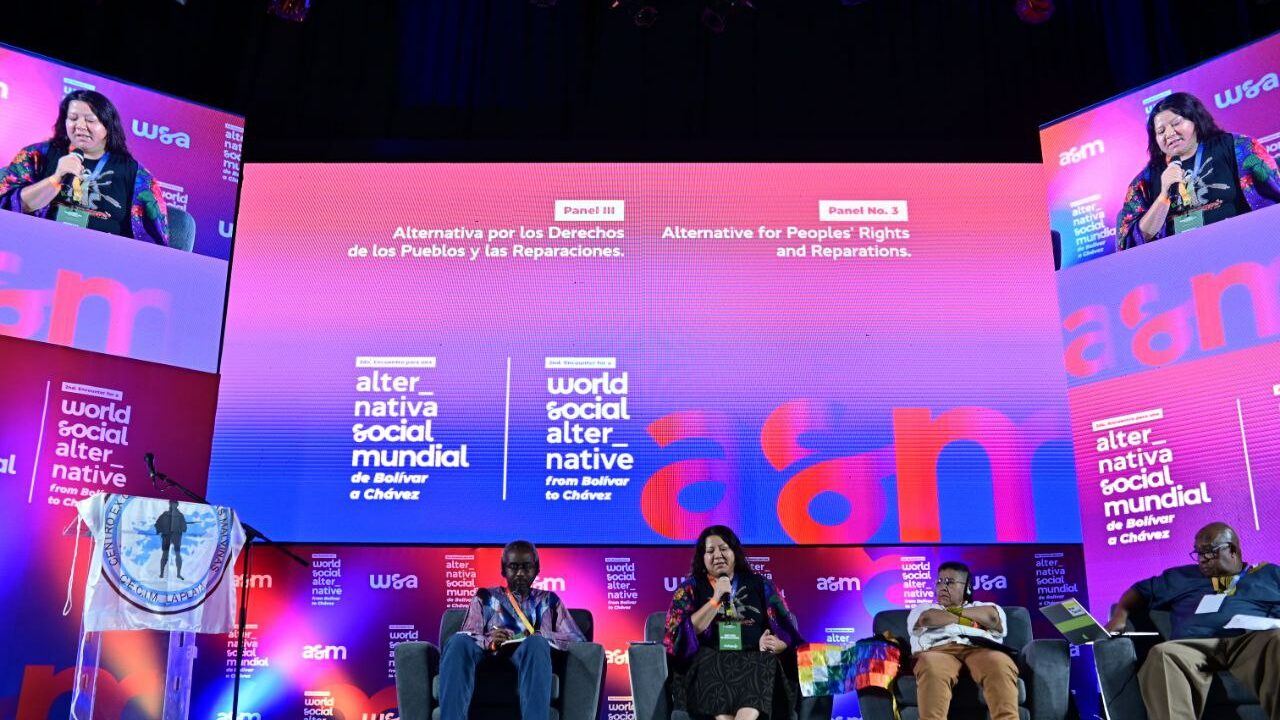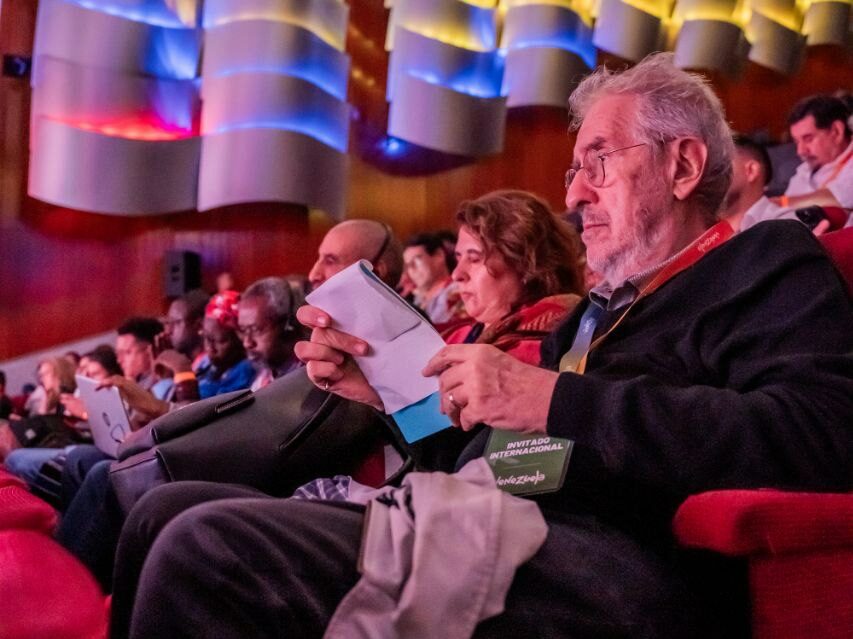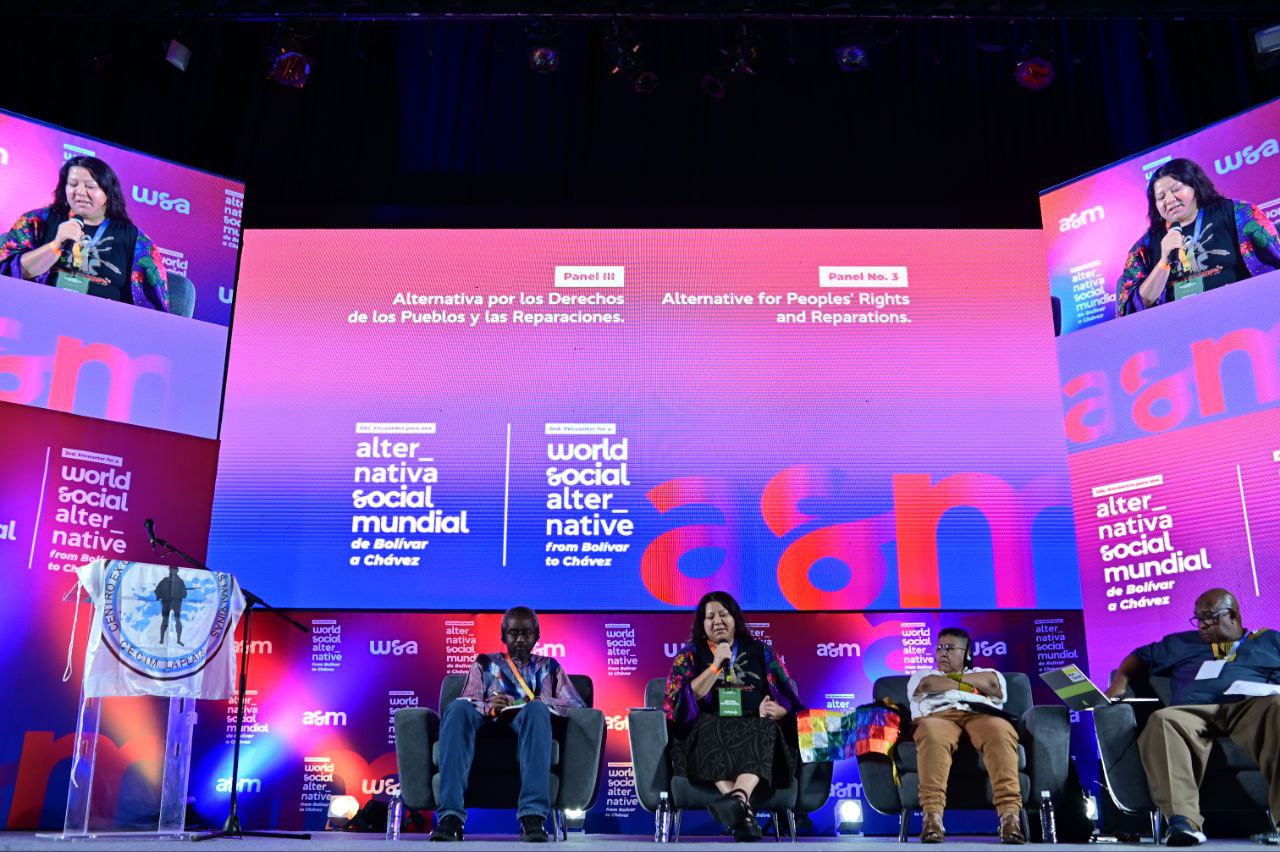Caracas, July 23, 2024 – At the 2nd Meeting for a World Social Alternative in Caracas, representatives from different organizations around the world shared their perspectives on the fight for the rights of historically oppressed and displaced communities during the panel: “Alternative for Peoples’ Rights and Reparations.”
The meeting, convened by the Bolivarian Alliance for the Peoples of Our America- People’s Trade Treaty (ALBA-TCP) and the Simon Bolivar Institute (ISB), aimed to promote unity and agree on an agenda to protect the region against imperial attacks.
Amzat Boukari, member of the Pan-African League UMOJA, emphasized the importance of Pan-Africanism as an anti-capitalist movement.
“In our vision, we oppose the exploitation of man by man,” he said, urging the search for a socialism based on the indigenous values of solidarity and unity among African peoples.
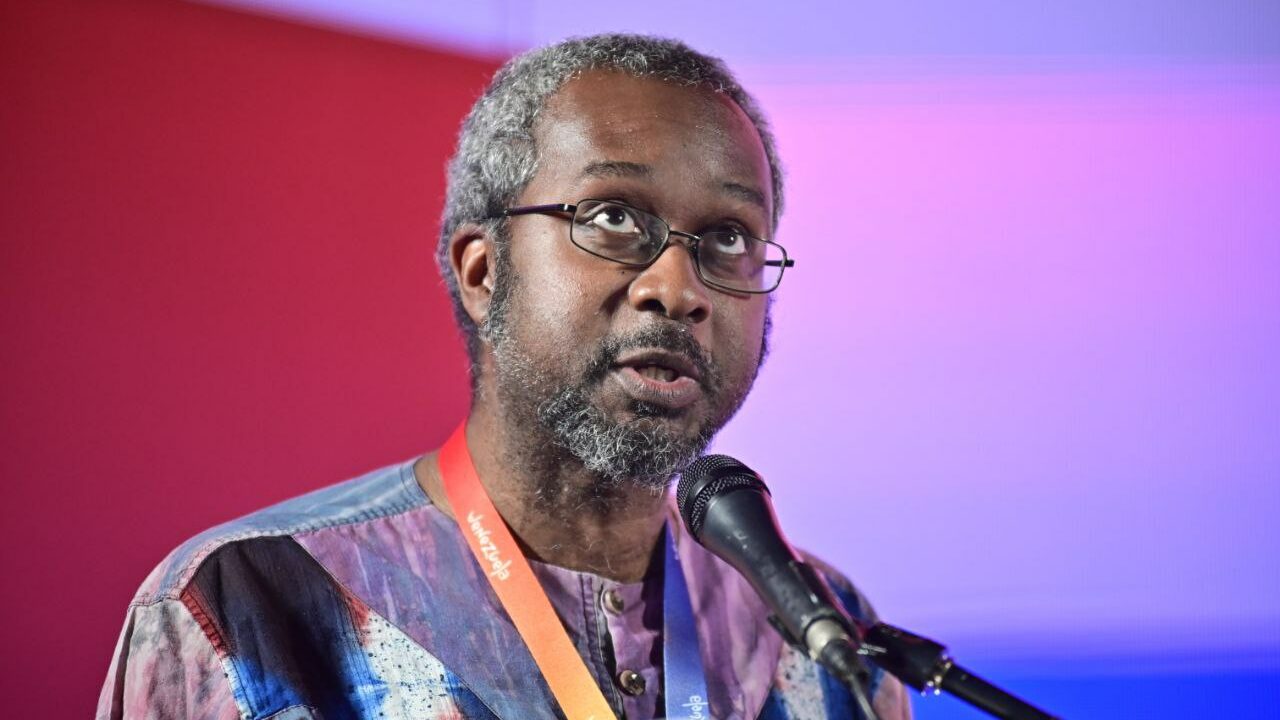
Julieta Paredes, from Bolivia, addressed the need for a communal feminism that rescues the memory of peoples. “Women are half of a people, half of the solutions, half of the hopes,” she stated, emphasizing the importance of epistemic decolonization and the recognition of history in the struggle for gender rights.
Paredes also highlighted the resistance process of indigenous peoples, which dates back to over 500 years of historical accumulation of struggles and defense of their territories.
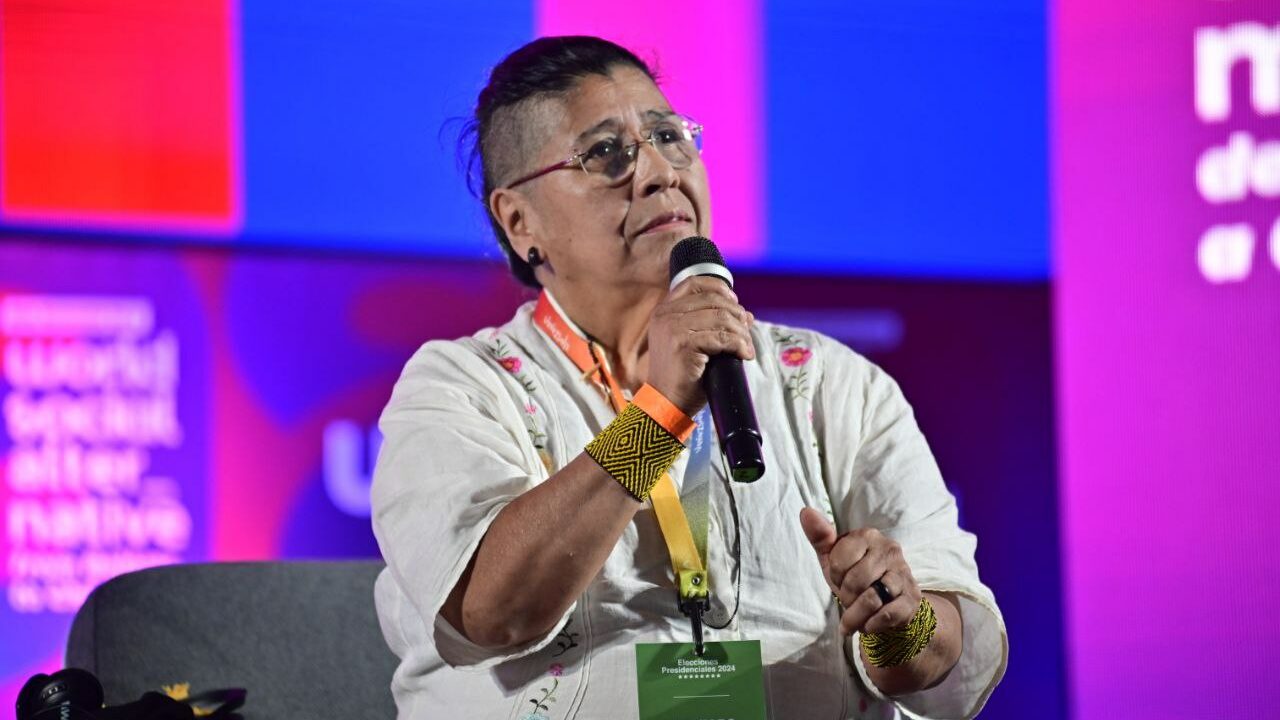
Cikiah Thomas, from the Global African Congress, provided insight on the lasting effects of slavery, stating that “the United Nations recognized that slavery and the slave trade are crimes against humanity that do not prescribe.” This statement resonates with the need for reparations and historical justice.
Finally, Justine Teba, co-founder of the Red Nation organization, emphasized the fundamental role of people’s organization in the creation of new ideas. “We (the indigenous peoples) are the political alternative in the United States,” she expressed, while also denouncing the colonial context that continues to affect indigenous communities in that country.
